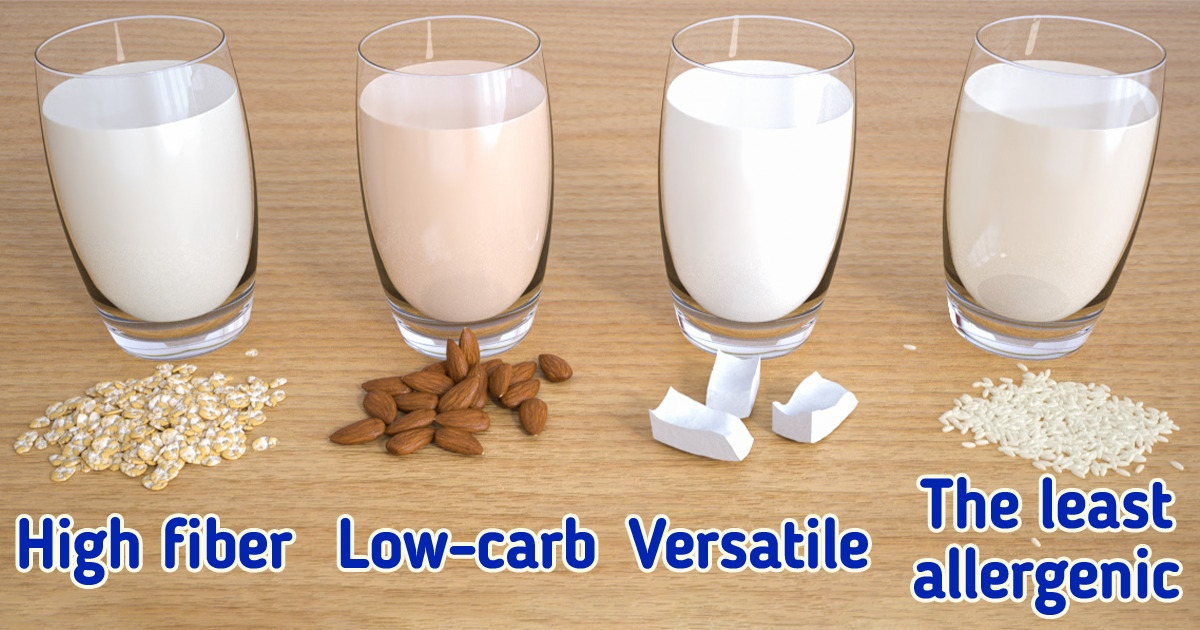
A Guide on Different Types of Plant-Based Milk

Plant-based milk is a popular plant alternative for cow milk, considered perfect for vegans and vegetarians. 5-Minute Crafts has prepared a short guide on the most common types of plant-based milk so that you can understand them better and incorporate them into your diet in the best way.
What plant-based milk is
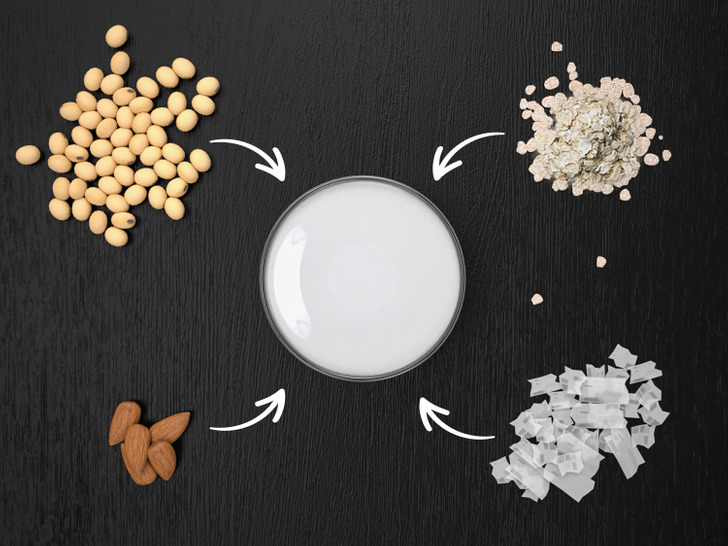
When we talk about plant-based milk, we first need to know the basics:
- It is a dairy-free beverage, which means that it is not connected to cow milk nor is it of animal origin.
- It can be used for cooking and drinking, just like cow milk.
- You can use any type of seeds or nuts to make plant-based milk, although the most common ones are coconut, soy, almond, cashew, hazelnut, rice, and flaxseed, among others.
- Some types of plant-based milk have been used for centuries, such as coconut or almond milk, as well as the very word “milk” to describe these plant-based liquids.
- Non-dairy alternatives might be a better option for people experiencing digestive problems due to their low lactose tolerance.
- Plant-based milk can be fortified, which means that vitamins and minerals are added to it to increase its nutritional value.
❗Attention! Due to the fact that plant-based milk you can find in stores is often packed with unhealthy additives, such as sugar, emulsifiers, and gums, it is advisable to make it at home. Plus, that way, you can save some money.
1. Soy milk
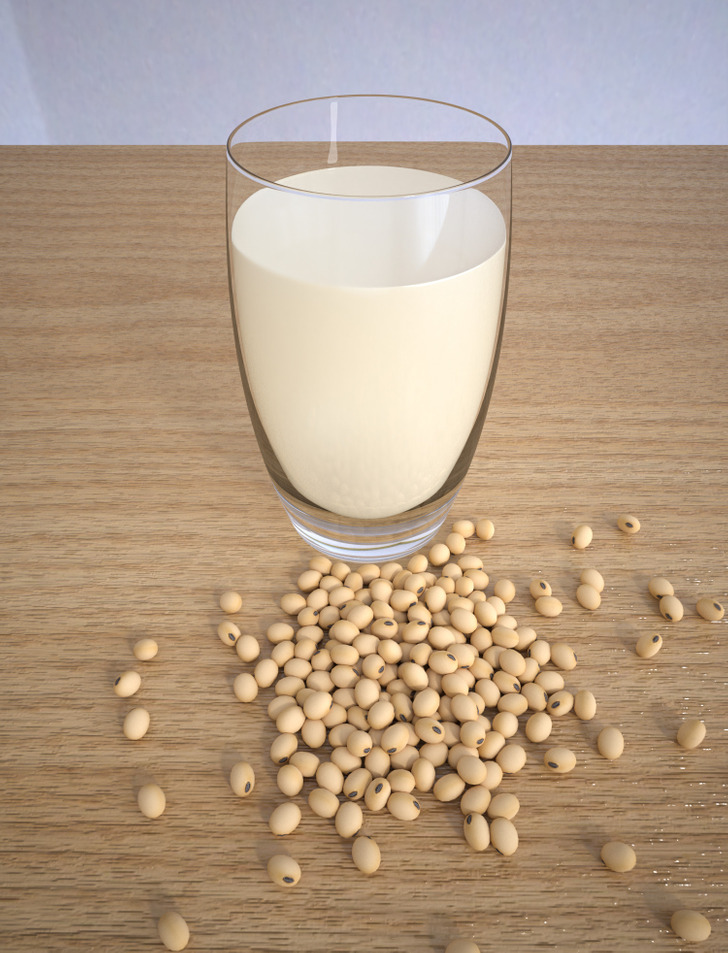
Soy milk, a by-product of tofu, is considered the most popular plant-based milk.
- In terms of its nutritional aspect, it is similar to cow milk and has more protein content than almond, coconut, rice, and cashew milk, combined.
- The amount of calories, carbs, and sugar in soy milk actually depends on the brand and variety. On average, a cup of soy milk provides around 105 calories. If you wish to restrict your consumption of calories, you should choose unsweetened soy milk.
- A cup of soy milk can have anywhere from 2 to 5 grams of fat. The protein content can also vary from 6.3 to 10 grams. Soy milk also provides calcium, vitamin D, vitamin B12, vitamin A, potassium, phosphorus, and iron, among other minerals.
❗ Attention: As there might be some complications regarding soy milk consumption, it’s better to consult with a medical practitioner before drinking it.
2. Oat milk
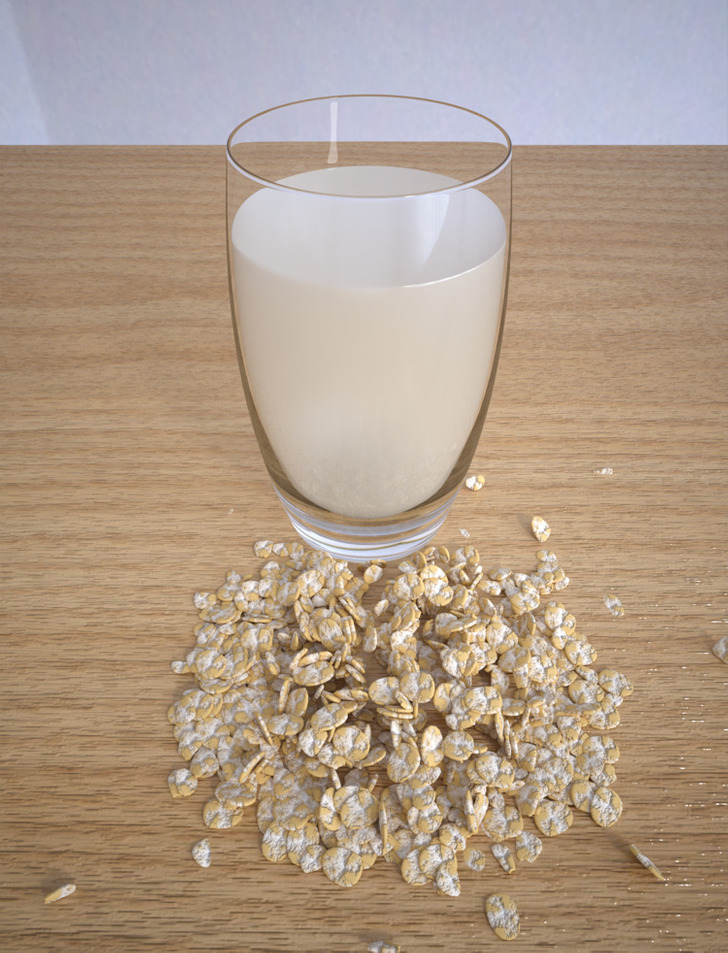
Oat milk is a rather simple plant-based milk to make, as it is basically a mixture of oats and water. It has a mild, sweet flavor, which makes it a perfect option for smoothies and cereal meals.
- Compared to cow milk, milk made of oats contains a similar number of calories. The carbs are twice as high, and the protein and fat content is two times lower.
- Oat milk is naturally high in fiber, which makes it very nutritious. The fiber is called beta-glucan and helps maintain the health of your blood vessels and keeps your blood sugar levels in order. It also makes you feel more full.
- It is naturally free of lactose, soy, and nuts, which makes it suitable for people with intolerances and allergies. It can be made from gluten-free oats too.
- This is an incredibly versatile type of plant-based milk when it comes to consumption. Try making a creamy cup of coffee by adding some oat milk to it.
3. Almond milk
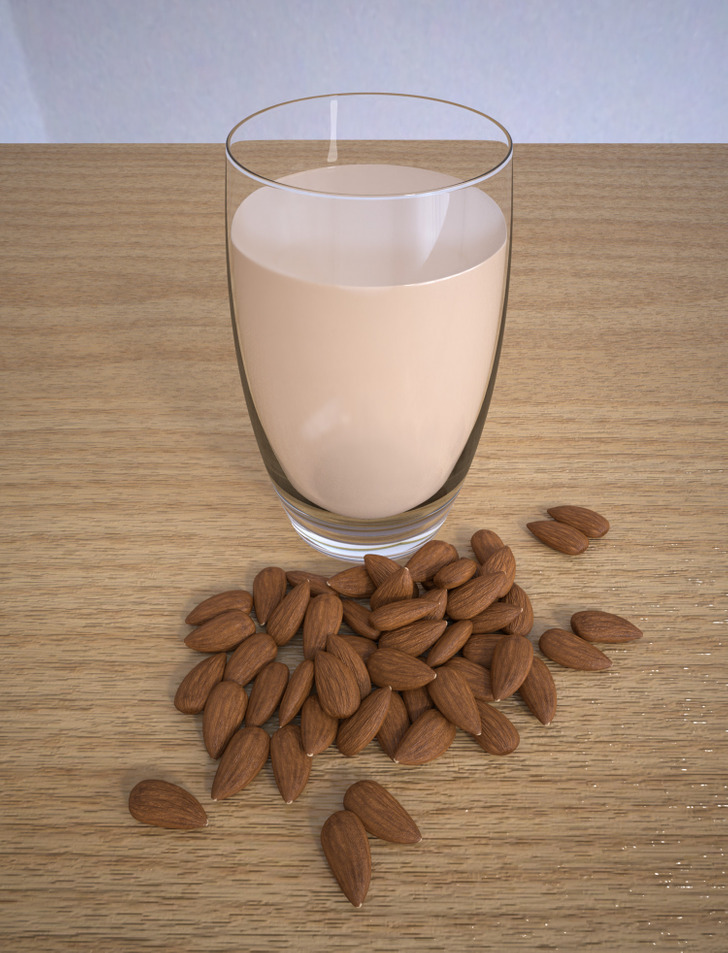
This tasty plant-based milk is made by blending almonds that have previously been soaked in water. The solid parts of the almonds are then removed. Here is what you should know about almond milk:
- It is considered to be the best option for cookies, cakes, pancakes, and smoothies since it possesses a slightly sweet flavor.
- It is high in vitamin E, but low in protein content. Many brands are fortified with vitamins A and D and calcium.
- Almond milk is low in calories and carbs, which makes it a good option for a low-carb diet. In that case, you should avoid brands with added sugar.
- Avoid this type of milk if you have problems with a tree nut allergy.
4. Cashew milk
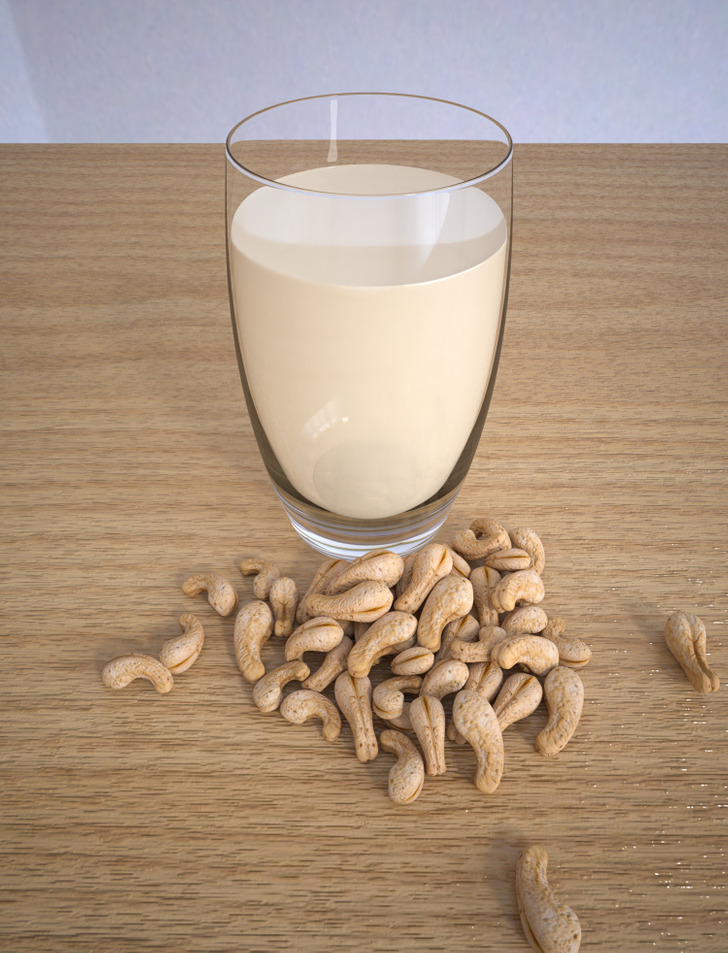
The plant-based milk made of cashews is actually a mixture of cashew butter or nuts and water. The nut pulp is later removed, thus, the vitamins, minerals, protein, and fiber are also lost. Cashew milk has a thick, creamy consistency. The flavor is slightly nutty and sweet.
- Cashew milk has a similar nutritional profile as almond milk. It is rich in zinc, magnesium, and copper and quite low in calories and sugar. However, you should note that it is not suitable for those who need to increase their protein intake, due to its very low protein content.
- It is considered good for heart health and it may enhance vision.
- In terms of culinary purposes, it is mostly used as a replacement for dairy creamers in creamed soups and chowders, as well as smoothies.
- As a good creamer replacement for making coffee, cashew milk is quite foamable and forms big bubbles, which might seem pleasing to coffee lovers.
5. Rice milk
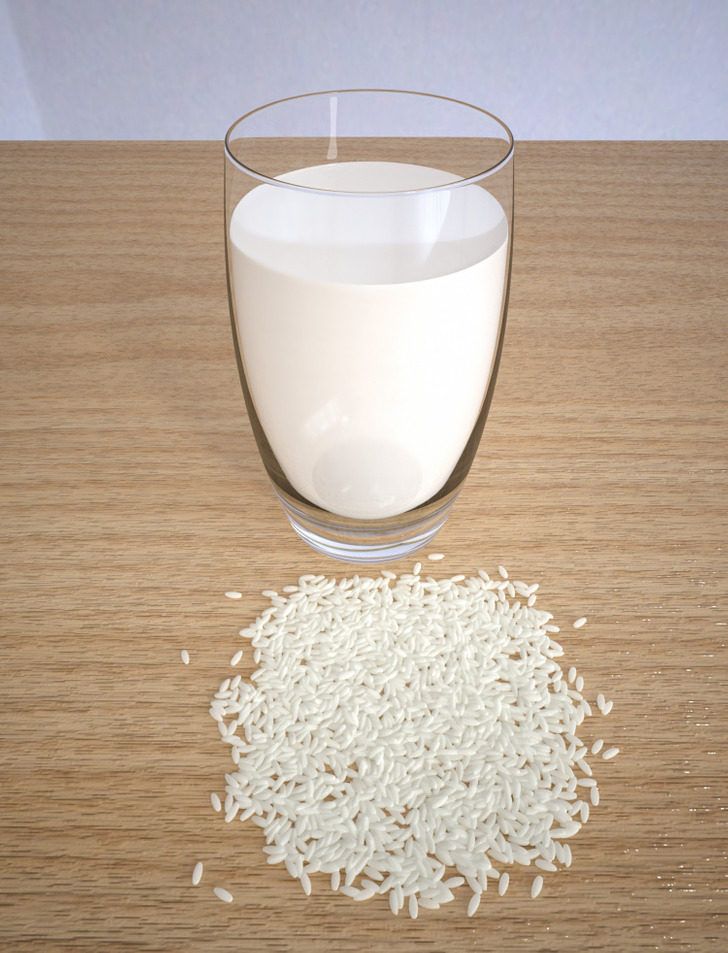
Milk based in rice is a mixture of water and milled white or brown rice. Its sweet flavor is mild and it’s consistency is watery, so it’s good to drink, but it is a nice ingredient to add to smoothies or desserts too. Here is what you should know about it:
- Out of all types of plant-based milk, rice milk is the least allergenic. Therefore, it is a good option for people with lactose or gluten intolerance and those suffering from allergies to soy or nuts.
- This non-dairy milk contains the most carbohydrates and a significant amount of sugar, which is why it is not advisable for people with high blood sugar.
- Its low content of protein doesn’t make it a suitable option for athletes, elderly people, and children.
- Rice milk has nutrients that keep your heart and blood pressure healthy and is rich in powerful antioxidants, such as manganese and selenium.
❗ Attention: Keep in mind that long-term exposure to arsenic, a chemical that rice milk contains, can lead to some health issues, so please consult with your doctor before any consumption of rice products.
6. Coconut milk
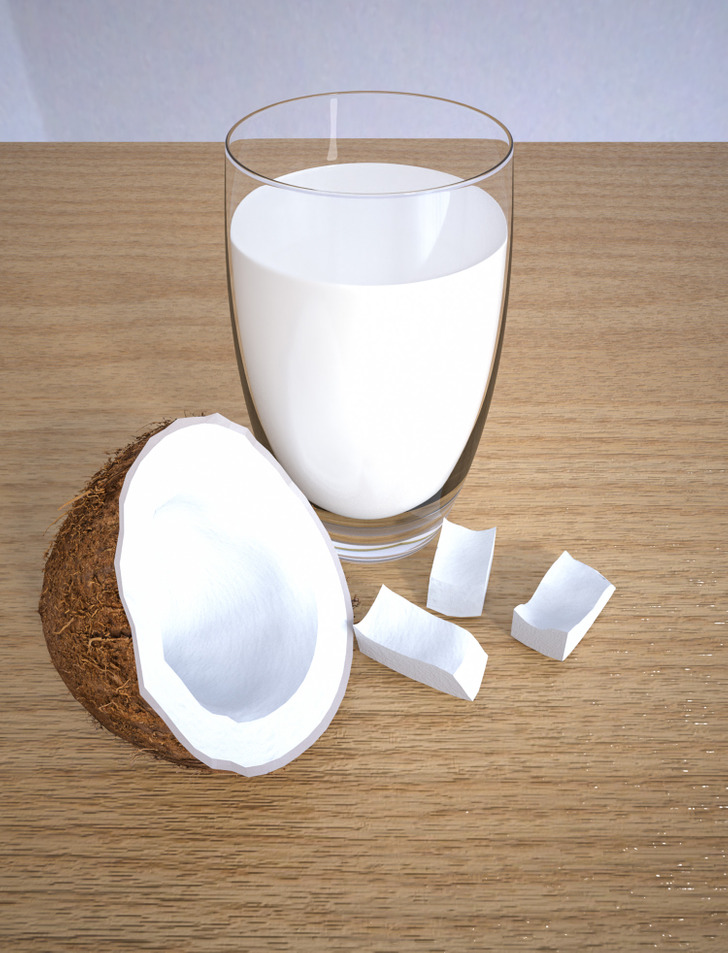
There are 2 varieties of coconut milk you can buy: the canned kind and the one packaged in cartons (as a beverage).
- The canned milk is good for cooking due to its thick texture and a lot of fat content. It has a more typical coconut flavor.
- The coconut milk packaged in cartons is considered a good replacement for cow milk in smoothies and coffee due to its unique coconut taste. It is also quite foamy and it may separate.
- Studies have shown that this non-dairy milk alternative can help maintain your blood vessels’ health.
- Coconut milk is safe for people with nut tree allergies.
- You can use coconut milk to prepare a wide range of delicious meals, including curries, smoothies, milk yogurt, whipped cream, and even ice cream.
- It’s a great ingredient for all types of homemade cosmetics, like, for instance, hair masks and body moisturizers.